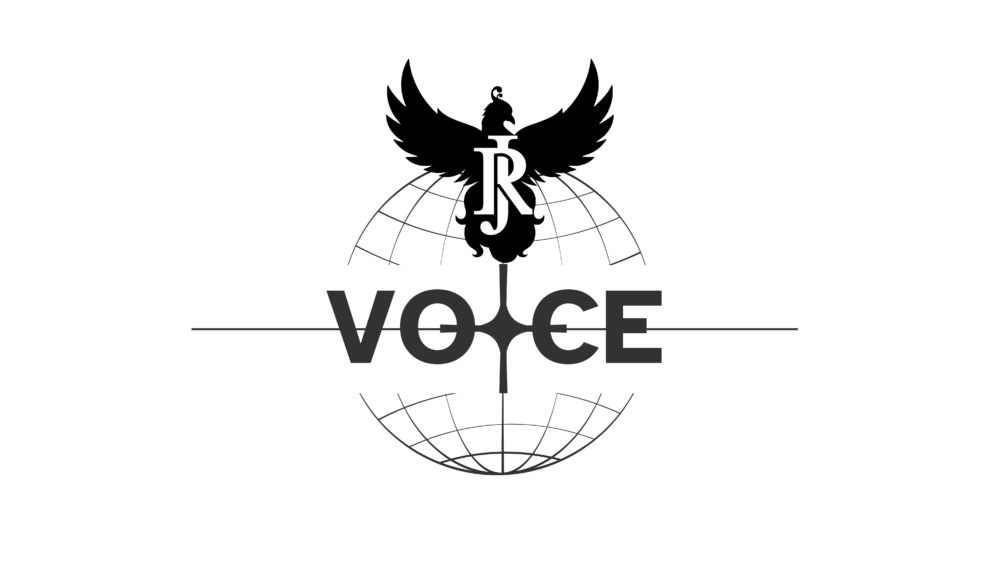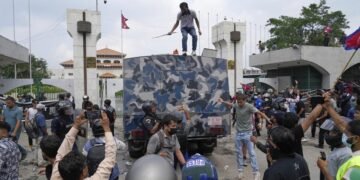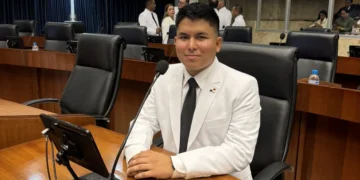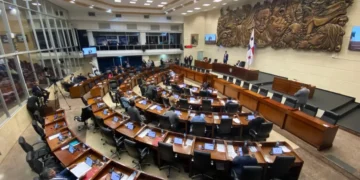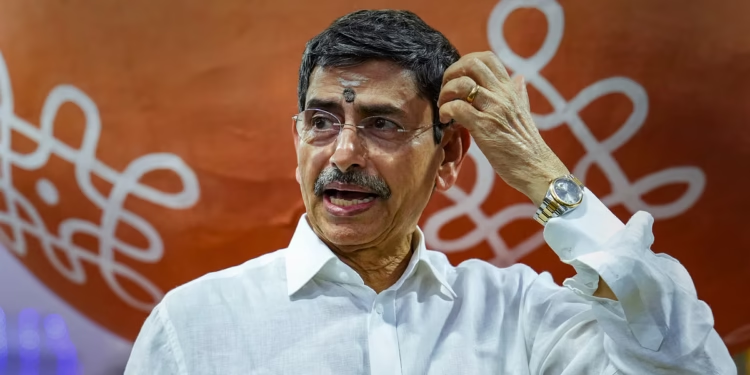Tamil Nadu Governor RN Ravi has stirred fresh political controversy after urging students at a public event in Madurai to chant “Jai Shri Ram.” The call, made during his address at Thiagarajar Engineering College on Saturday, has prompted sharp criticism from opposition leaders, particularly the Congress, who accused him of acting as a mouthpiece for the Rashtriya Swayamsevak Sangh (RSS) and the Bharatiya Janata Party (BJP).
During his speech, the Governor paused to invite the audience to join him in chanting the religious slogan associated with Hindu deity Lord Ram. “I will say, and you will say – Jai Shri Ram,” he announced, leading to a chorus of chants from the crowd. The moment quickly drew public attention and political backlash.
Reacting to the incident, Congress MLA JMH Hassan Maulaana condemned the Governor’s comments, stating that such conduct was unbecoming of someone holding a constitutional office. He accused Ravi of abandoning the impartiality expected of his position and instead promoting the ideology of the BJP and RSS. “The Governor is occupying one of the highest posts in the country but is speaking like a religious leader. He has now become a propaganda master of the RSS and BJP. This is not the way a Governor should behave,” the Congress leader said in a statement.
Maulaana further emphasized that the Governor should maintain neutrality, especially given his role as a representative of the constitutional framework. He described Ravi’s actions as part of a pattern of behavior that aligns more closely with political activism than with his responsibilities as a neutral constitutional authority.
The latest controversy comes on the heels of a recent Supreme Court ruling that directly criticized Governor Ravi for delaying assent to several bills passed by the Tamil Nadu state legislature. The court cleared ten bills that had been pending without gubernatorial approval and reprimanded the Governor for his inaction. It also established a timeline, mandating that a Governor must act on bills within a month, and once a bill is sent to the President, action must follow within three months.
Governor Ravi’s decision to invoke a religious slogan in an academic setting and his previous refusal to act on legislative matters have raised broader concerns among political observers and critics, who argue that he is undermining the spirit of federalism and overstepping the boundaries of his constitutional role.
As political tensions escalate in Tamil Nadu ahead of upcoming elections, Governor Ravi’s conduct is likely to remain a flashpoint in the ongoing debate over the role of Governors in India’s federal structure.

